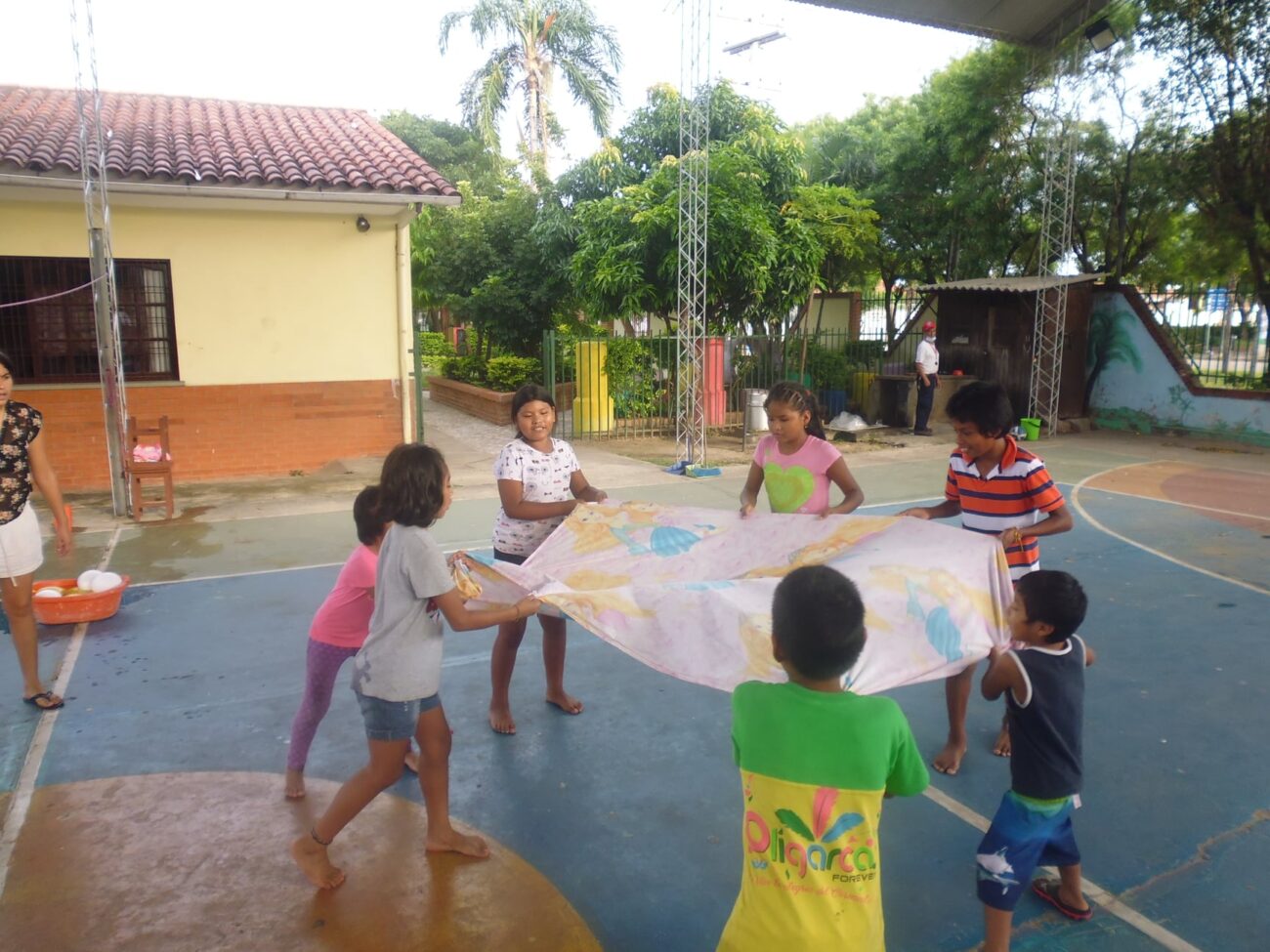
BOLIVIA: Youth at Hogar Don Bosco access recreational activities thanks to donor funding from Salesian Missions
Children are sheltered temporarily at Hogar Don Bosco due to abandonment and other issues.
NEW ROCHELLE, NY (Oct. 12, 2021) Youth attending Hogar Don Bosco, facilitated by the Don Bosco Project in Santa Cruz de la Sierra, Bolivia, had access to recreational activities thanks to donor funding from Salesian Missions, the U.S. development arm of the Salesians of Don Bosco. The funding was utilized for camps, retreats, sports activities and games. In addition, educational materials, sports materials, prizes, food and transportation were provided.
There were 87 children and older youth who participated in the recreational activities, which are important for their development. This is particularly true during the pandemic when children have been out of their normal routine and isolated from school and their peers.
The children are sheltered temporarily at Hogar Don Bosco, some due to abandonment, physical and psychological violence, or an unsafe family environment. A few children entered the program enter after living on the streets.
One of the recipients is Messi Acha Aguilar, age 10. He has finished the fourth grade and enjoys spending time with his peers, especially camping with friends. Aguilar would like to be a doctor when he grows older.
“We appreciate the donor funding that has allowed these youth to take part in recreational activities,” said Father Gus Baek, director of Salesian Missions. “This has been a challenging time for many youth who have already lived through such hardships. Providing them fun and educational activities and time with their peers is good for their well-being.”
The Don Bosco Project, which launched in November 1991, acts as a hub to help coordinate activities among several local Salesian-run programs including Hogar Don Bosco, Mano Amiga, Patio Don Bosco and Techo Pinardi. The project provides comprehensive rehabilitation and vocational training programs that bring social inclusion and meaningful employment to its students.
Every year Santa Cruz attracts youth who leave the difficult life of the rural highlands in search of new opportunities. The Don Bosco Project ensures these youth and others have access to emergency shelter, clothing and nutritious meals. The project also brings together psychologists, social workers, health care staff and teachers who work together to address the needs of almost 2,000 children who access primary and secondary schooling and vocational education.
Bolivia is the poorest country in South America and has the most unequal income distribution on the continent. According to the World Bank, the poverty rate was 35 percent in 2018. It is common for Bolivians to struggle to find adequate nutrition, shelter and other basic necessities. The geography of Bolivia contributes to the overwhelming poverty of its residents. Large swaths of the country remain undeveloped with a lack of roads and infrastructure.
###
Contact: [email protected]
